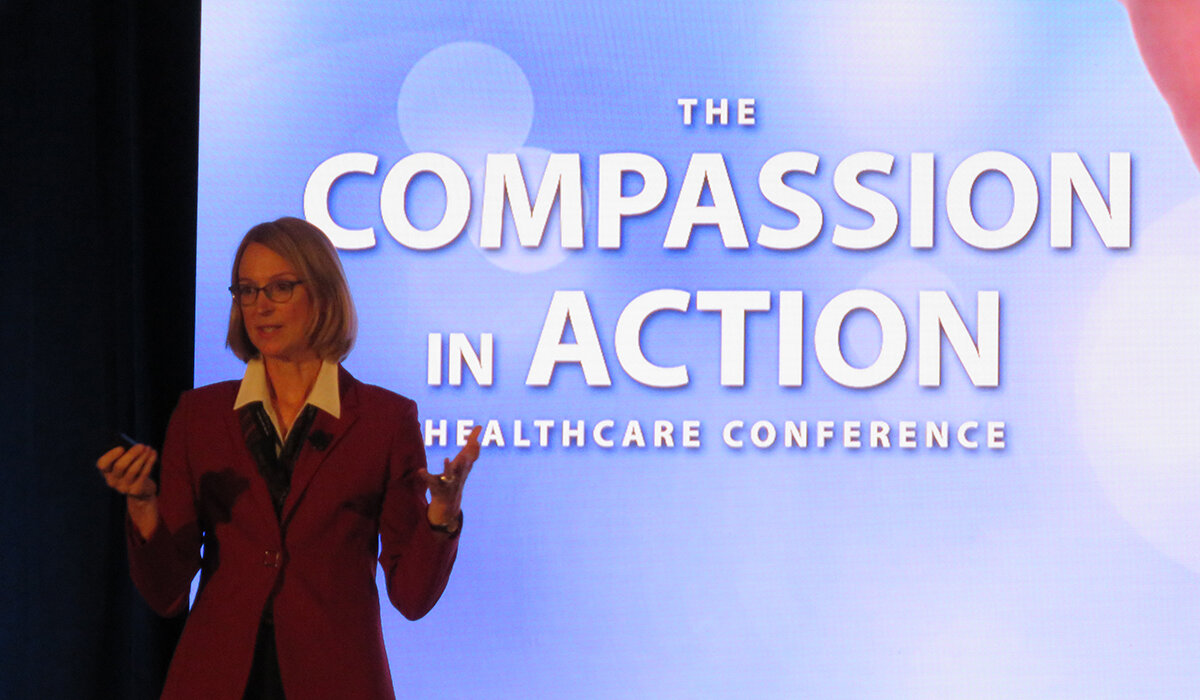Closing the Compassion Gap – Dr. Helen Riess on the Role of Empathy and Compassion in Healthcare
The numbers are deeply concerning. Only 50% of patients say that healthcare providers are compassionate, and 63% of healthcare providers say that they have seen a decline in compassionate care in the last five years. In her keynote at the 2019 Compassion in Action Healthcare Conference, Helen Riess, MD, Director, Empathy Program, Massachusetts General Hospital, Associate Professor of Psychiatry, Harvard Medical School and Founder, Empathetics, Inc. discussed the origins of the compassion gap, why it matters, and the way forward for those wanting to strengthen the state of compassionate care in American medicine.
Technology was the most frequently cited contributor to the deterioration of compassion in healthcare. While advanced technology offers significant steps forward in interventional power, it can also come between the patient and their healthcare providers. The electronic health record interface becomes the focus of providers to the detriment of the patient. Other factors cited by Dr. Riess included lack of sufficient training for the emotional labor of medicine, lack of strong role models, and the changing norms of civility in society.
Dr. Helen Riess explains how to close the compassion gap in healthcare at the 2019 Compassion in Action Healthcare Conference. Credit: Center for Compassionate Leadership.
The problem is about more than just patients’ feelings. Compassion impacts medical outcomes, quality, and safety. Dr. Riess cited 2014 research, of which she was a co-author, that showed that the patient-clinician relationship has a statistically significant impact on healthcare outcomes.
The good news, largely flowing out of other research by Dr. Riess is that our capacity for empathy is hardwired, and that we have the ability to increase or decrease our expression of it. In addition, empathy can be taught. Prior to the 2012 publication of another of her studies, Dr. Riess said that “most people… believed that you had a fixed amount of empathy and you either had it or you didn’t.” The 2012 study showed that “a brief intervention grounded in the neurobiology of empathy significantly improved physician empathy as rated by patients.”
So what does this doctor prescribe for what’s ailing medicine? First, we need a leadership commitment to the development of empathy and compassion in healthcare settings. You also need community building around the topic. This is something that Schwartz Rounds, the centerpiece program of the Schwartz Center, is particularly effective at doing. You need training, and Dr. Riess has developed a full program for training, described in her book, The Empathy Effect. Finally, Dr. Riess recommends that we do all that we can to bring heart and humanity into, or more accurately, back into healthcare.


